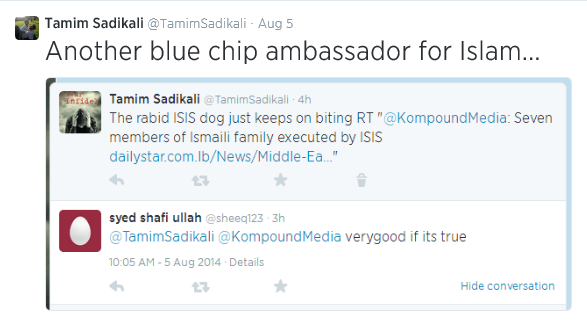“No one town or city is more suitable for you than another. The best of places is the one that bears you and provides for you.”
Ali Ibn Abi Talib SA
In his article, itself a response to another by Mehdi Hasan, Dilly Hussain writes that “…it is preposterous to reject an Islamic State as having no ‘theological’, ‘historical’ or ‘empirical’ evidence.” Later, he adds, “…to suggest that the state of Medina under the Prophet Mohammed SA and its political infrastructure cannot be used as an analogy for a modern Islamic State, is as absurd as saying that a horse and carriage cannot be considered a mode of transport since it lacks the modern features of a car.”
However, that begs the question, how should a Muslim determine the legitimacy of such a state – and, in particular, of the person who drives a stake into the earth, hoists a flag, and declares himself King? Can there be more than one 'King'? Can anyone do it? Is it based on courage, brazenness, might, right, money, something else..? Just how is a Muslim to separate wheat from chaff; a true leader from a clown? And beyond that, whose Muslim state is it anyway? That of the Whirling Dervish, or of mainstream Sunni Muslims, or of ISIS..?
But for all the talk of Islamic States, what of where Muslims live today: in Britain, the United States, Pakistan, Tanzania, China, Russia..? What is a Muslim’s role, his or her responsibility to the country in which one resides? Whilst there is no conflict between aspiring to an Islamic State, and hand-in-hand living as an active, contributing member of a secular state, not every aspirant meets such a benchmark. Indeed, the fault-line betweens Muslims and non-Muslims in the West, centres on this very point - that some represent, overtly, a 'fifth column'. And there is a blatant contradiction in living somewhere, **anywhere**, under the protection of a flag and benefiting from shared resources, whilst being antagonistic. What bitter harvest, in having no care to contribute to a society's betterment, but instead being openly hostile?
 | ||
| "Mingle with people in such a way that as long as you live they are drawn towards you, and when you are no longer amidst them they weep for you." Ali Ibn Abi Talib SA |
However one approaches all the above, one thing should be clear – that Abu Bakr Al-Baghdadi’s vision for an Islamic State, needs no academic, intellectual or even theological debate – it offends basic, common sense.
 |
| Beheading an Iraqi soldier |
For those that disagree, and who view the ISIS brand as the zenith of Islamic expression, well… It is time for them to go and leave the rest of us, non-Muslims and the majority of Muslims alike, in peace.






